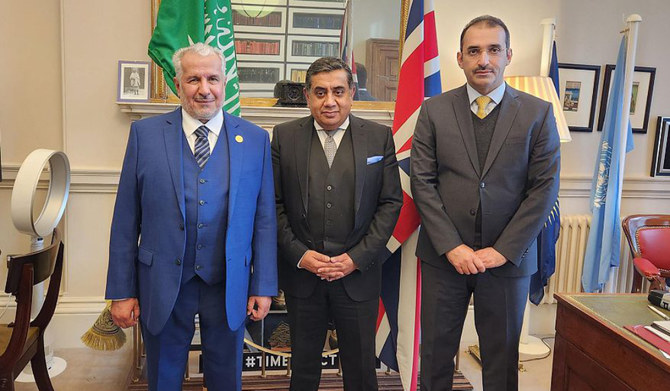ISLAMABAD: The chief minister of Pakistan’s Punjab province has offered Saudi investors incentives as part of a “special package” to explore opportunities in religious tourism, health, education and infrastructure, state-run media reported this week.
Punjab Chief Minister Maryam Nawaz Sharif met Prince Mansour bin Mohammed Al Saud, former governor of Saudi Arabia’s Hafr Al-Batin province, on Monday to discuss promoting bilateral relations and mutual cooperation between Saudi Arabia and Punjab, according to the Associated Press of Pakistan.
The two nations enjoy cordial ties, with Riyadh frequently assisting cash-strapped Pakistan by supplying oil on deferred payment terms and financial support to stabilize its economy.
“During the discussions, the chief minister invited Saudi investors to explore opportunities in infrastructure, health, education and religious tourism in Punjab,” APP reported. “She assured Saudi investors of her government’s full cooperation and the provision of incentives under a special package.”
Sharif praised Saudi Arabia’s longstanding cooperation with Pakistan, saying Riyadh was like an older brother.
“The hearts of the people of both countries beat together,” she is quoted as saying.
“The Punjab government has ensured foolproof security and established a system based on merit to improve the business environment in the province.”
APP said Prince Mansour assured Pakistan of Saudi Arabia’s support.
“The relationship between Pakistan and Saudi Arabia is crucial for the stability and prosperity of the entire region,” he said. “Saudi Arabia will always stand by Pakistan.”
The Kingdom is home to over 2 million Pakistani expatriates and is the source of most overseas workers’ remittances for Pakistan.
The two countries have forged strong business and economic relations in recent months. In October 2024, Pakistan and Saudi Arabia signed several memorandums of understanding valued at $2.8 billion. In December, Sharif’s office confirmed that seven of 34 MoUs had been converted into agreements worth $560 million.




























